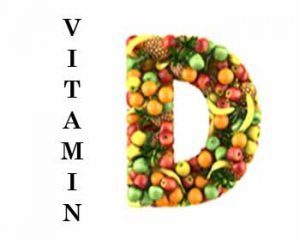- Home
- Editorial
- News
- Practice Guidelines
- Anesthesiology Guidelines
- Cancer Guidelines
- Cardiac Sciences Guidelines
- Critical Care Guidelines
- Dentistry Guidelines
- Dermatology Guidelines
- Diabetes and Endo Guidelines
- Diagnostics Guidelines
- ENT Guidelines
- Featured Practice Guidelines
- Gastroenterology Guidelines
- Geriatrics Guidelines
- Medicine Guidelines
- Nephrology Guidelines
- Neurosciences Guidelines
- Obs and Gynae Guidelines
- Ophthalmology Guidelines
- Orthopaedics Guidelines
- Paediatrics Guidelines
- Psychiatry Guidelines
- Pulmonology Guidelines
- Radiology Guidelines
- Surgery Guidelines
- Urology Guidelines
Vitamin D improves weight gain & cognition in malnourished kids

According to an estimate, there are 1.4 million malnourished children in Pakistan who are at increased risk of long-term effects on their physical and mental health. Dr. Javeria Saleem from University of the Punjab and Queen Mary University of London and colleagues conducted a study and found that High dose vitamin D supplements improve weight gain and cognition including language and motor skills in malnourished children.The study has been published in The American Journal of Clinical Nutrition.
Vitamin D is well known for its beneficial effects on bone and muscle health and it also protects against colds and flu and the present research is revealing further benefits.
Lead author Dr Javeria Saleem from University of the Punjab and Queen Mary University of London said: "High-dose vitamin D significantly boosted weight gain in malnourished children. This could be a game-changer in the management of severe acute malnutrition, which affects 20 million children worldwide."
Senior author Professor Adrian Martineau from Queen Mary University of London added: "This is the first clinical trial in humans to show that vitamin D can affect brain development, lending weight to the idea that vitamin D has important effects on the central nervous system.
"Further trials in other settings are now needed to see whether our findings can be reproduced elsewhere. We are also planning a larger trial in Pakistan to investigate whether high-dose vitamin D could reduce mortality in children with severe malnutrition."
High energy food sachets are the standard treatment for the condition, but they contain relatively modest amounts of vitamin D.
In the study, 185 severely malnourished children aged 6-58 months were treated with an eight-week course of high energy food sachets, and were also randomised to either receive additional high-dose vitamin D (two doses of 200,000 international units / 5 milligrams, given by mouth) or placebo.
After eight weeks, vitamin D supplementation led to clinically significant improvements in weight (on average gaining an extra 0.26 kg compared to the control group).
Vitamin D supplementation also resulted in substantial reductions in the proportion of children with delayed motor development, delayed language development and delayed global development (reaching certain milestones such as learning to walk or talk).
Senior author Dr Rubeena Zakar from University of Punjab added: "Our findings could be a great help to the Health Ministry of Pakistan in dealing with the issue of malnutrition."
The researchers say their study has some limitations including that it did not look at varying the dose of vitamin D to see if a lower dose would have been sufficient to boost weight gain and brain development. Moreover, the possibility of side effects arising with clinical use of this high dose of vitamin D cannot be excluded.

Disclaimer: This site is primarily intended for healthcare professionals. Any content/information on this website does not replace the advice of medical and/or health professionals and should not be construed as medical/diagnostic advice/endorsement or prescription. Use of this site is subject to our terms of use, privacy policy, advertisement policy. © 2020 Minerva Medical Treatment Pvt Ltd